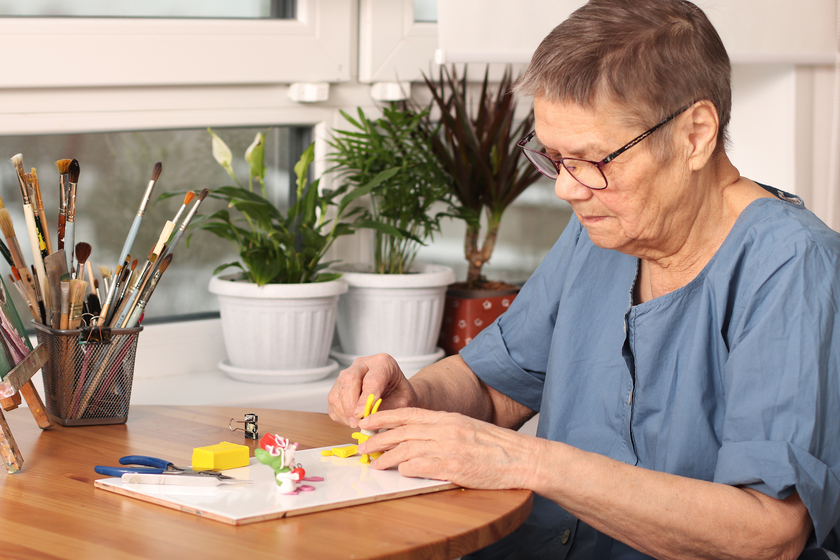All Regarding Memory Care Services: Why Tiny Memory Care Residences Are an Excellent Selection
Memory care services play an important role in sustaining people with Alzheimer's and dementia. Tiny memory treatment homes stand out for their customized strategy and intimate setup. With reduced staff-to-resident ratios, these homes cultivate stronger links and tailored treatment. Citizens profit from boosted social communications and a secure environment. As family members check out choices, comprehending the unique advantages of little memory treatment homes becomes important. What factors should be considered when choosing the ideal home?
Recognizing Memory Care Services
While many might know with basic elderly care choices, understanding memory treatment services is vital for family members facing the difficulties of cognitive decline. Memory care particularly deals with individuals with conditions such as Alzheimer's disease and other forms of dementia. These solutions provide an organized setting that focuses on improving the top quality of life for citizens with specialized care and support.Memory care facilities are created to ensure security and security, usually featuring protected environments to stop wandering. Educated team member are offered all the time to assist with daily tasks, drug management, and personal treatment. Furthermore, memory treatment programs commonly include cognitive excitement activities, tailored to involve locals and advertise psychological wellness. Families can benefit from comprehending these solutions, as they allow informed choices concerning their liked ones' treatment, ensuring that their particular demands and choices are addressed in a supportive and caring fashion.
The Benefits of Little Memory Care Houses
Small memory treatment homes offer distinctive advantages that can substantially improve the high quality of life for homeowners with cognitive disabilities. One considerable advantage is the intimate setting, which permits individualized communications among team and citizens. This smaller setup cultivates meaningful connections, decreasing feelings of seclusion and anxiousness commonly experienced by individuals with memory issues.Additionally, the lower staff-to-resident proportion in tiny memory treatment homes allows caregivers to give even more conscientious guidance and assistance. This approach not just boosts safety but likewise advertises a complacency for the residents.Moreover, small memory care homes can adjust promptly to the distinct demands and preferences of each citizen, enabling a much more homey environment. Such an atmosphere can motivate social interaction and engagement in activities, eventually enhancing the daily experiences of those dealing with cognitive impairments.
Personalized Care Plans for Citizens
Individualized treatment strategies are vital in memory care homes, as they satisfy the unique needs and preferences of each local. These plans start with complete evaluations conducted by skilled experts, that evaluate cognitive capacities, medical history, and individual interests. This customized approach guarantees that care is not just effective yet likewise considerate of each individual's dignity and autonomy.Moreover, individualized treatment strategies are versatile, permitting adjustments as locals' requirements advance over time. This versatility fosters a complacency and knowledge, which is crucial for people living with memory challenges. Caretakers are educated to implement these plans constantly, offering support that aligns with the homeowners' routines and preferences.Ultimately, individualized care strategies enhance the lifestyle for locals by advertising involvement, freedom, and well-being, making them an essential aspect of memory treatment services in little memory care homes.
Producing a Home-Like Setting
Producing a home-like atmosphere is critical for promoting convenience and knowledge in memory treatment setups, as it significantly influences residents' psychological well-being. Little memory treatment homes frequently focus on personalized touches, such as warm color palettes, family pictures, and acquainted furniture arrangements, which help citizens really feel much more comfortable. Incorporating components evocative a traditional home, like comfy space and communal locations, urges a feeling of belonging.Moreover, making use of natural light and outdoor rooms can enhance the environment, advertising relaxation and tranquility. Employee play a considerable function in keeping this setting by involving with locals in a compassionate manner, treating them like household. Regular activities, such as cooking or gardening, can additionally add to a home-like feeling, providing possibilities for locals to join purposeful experiences. Generally, developing a supporting atmosphere supports cognitive feature and emotional stability, making it a vital element of memory treatment solutions.
Improved Social Interaction and Area
Improved social communication and neighborhood are vital elements of memory care solutions. By fostering personalized social interaction and creating a family-like atmosphere, these solutions promote significant links among residents. Team activities and events further motivate participation, helping people really feel much more included and supported.
Personalized Social Interaction
While social interaction is necessary for total well-being, lots of individuals with memory impairments usually have a hard time to engage meaningfully with others. Customized social engagement in memory care homes addresses this challenge by creating tailored activities that satisfy homeowners' unique rate of interests and capacities. By concentrating on individual choices, caregivers can cultivate connections that reverberate deeply with each person. Tasks such as art treatment, songs sessions, and guided discussions advertise cognitive excitement and psychological expression. Additionally, little team settings urge friendship and permit for even more intimate communications, enhancing feelings of belonging. This strategy not only fights feelings of seclusion however also encourages residents to preserve a sense of identification, ultimately adding to improved mental health and quality of life.
Family-like Environment
In a memory care setting, promoting a family-like atmosphere considerably enhances social interaction and develops a feeling of community amongst residents. Smaller memory care homes commonly prioritize intimate atmospheres, allowing residents to form closer links with one another and personnel. This nurturing environment advertises count on, which is important for people with memory impairments. Residents are most likely to talk and share experiences, producing a supportive network that eases feelings of loneliness. The familiarity of common areas and routines adds to a sense of belonging, further encouraging social communication (personalized memory care). In such setups, emotional bonds flourish, causing boosted total well-being and a greater top quality of life for locals as they navigate their day-to-day experiences together
Group Activities and Occasions

Safety And Security and Security Features in Little Homes
Lots of little homes made for memory treatment integrate crucial safety and security functions to assure the well-being of locals. These homes commonly make use of secure entry and departure factors to protect against straying, a common issue among people with memory problems. In addition, security systems and alarm devices boost tracking, ensuring that personnel can immediately respond to any kind of unusual activities.Interior designs are customized for safety, with minimized hazards such as clutter-free pathways and sharp edges. Handrails and non-slip flooring are usually set up to decrease the danger of falls. Personnel are learnt emergency methods, guaranteeing they are prepared for numerous situations.Moreover, individualized care plans may consist of evaluation of specific security demands, giving tailored options for every local. Generally, these safety and safety and security attributes produce a nurturing environment where residents can prosper while maintaining their dignity and independence.
How to Choose the Right Memory Treatment Home
Exactly how can families assure they choose one of the most ideal memory treatment home for their liked ones? The decision calls for mindful consideration of numerous elements. Families need to evaluate the center's staff certifications and training, ensuring that caretakers are experienced in taking care of memory-related problems. Next off, it's crucial to evaluate the home's setting, focusing on safety and security attributes and whether it cultivates a feeling of neighborhood and belonging. Seeing the facility can supply insight right into everyday tasks and the social environment, which are essential for psychological stimulation and psychological wellness. In addition, families ought to inquire concerning the care strategies supplied, ensuring they are customized to private requirements. Taking into consideration the home's place and accessibility for household check outs can add to a smoother change. By attending to these aspects, households can make an informed decision that prioritizes their liked one's comfort and lifestyle in a memory treatment setup.
Often Asked Questions
What Certifications Should Staff Members in Memory Treatment Residences Have?
Team member in memory treatment homes must possess appropriate certifications, experience in dementia care, solid interaction skills, and empathy. Recurring training in behavior management and healing interventions improves their ability to support homeowners properly.
How Do Memory Treatment Provider Differ From Conventional Assisted Living?
Memory care solutions concentrate specifically on individuals with memory impairments, offering specific assistance and organized settings. On the other hand, standard assisted living offers basic help with daily activities, lacking the tailored method required for those my latest blog post with cognitive difficulties.
What Kinds of Activities Are Supplied in Memory Treatment Homes?
Memory care homes normally offer a click this range of tasks made to involve homeowners. Usual options consist of art treatment, songs sessions, cognitive games, physical workouts, gardening, and gatherings, all aimed at boosting wellness and cognitive feature.
Can Homeowners Bring Their Own Items to Memory Treatment Houses?
Citizens can typically bring their own valuables to memory treatment homes, allowing them to personalize their space - personalized memory care. This method aids create a familiar setting, advertising comfort and a feeling of identity for the people

How Are Relative Associated With the Care Refine?
Relative play a vital function in the treatment process, frequently taking part in decision-making, going to care meetings, and supplying emotional support. Their involvement fosters a joint atmosphere, improving the local's general wellness and top quality of life. While numerous may be acquainted with basic senior care options, understanding memory treatment services is essential for families dealing with the challenges of cognitive decline. These solutions supply a structured atmosphere that concentrates on improving the quality of life for residents via specialized treatment and support.Memory care facilities are developed to ensure safety and security and protection, often featuring protected environments to prevent roaming. Customized treatment strategies are important in memory care homes, as they provide to the special demands and preferences of each citizen. Personnel members in memory care homes ought to have pertinent accreditations, experience in mental deterioration treatment, strong interaction abilities, and concern. Memory care services focus especially on individuals with memory disabilities, supplying specific assistance and structured settings.